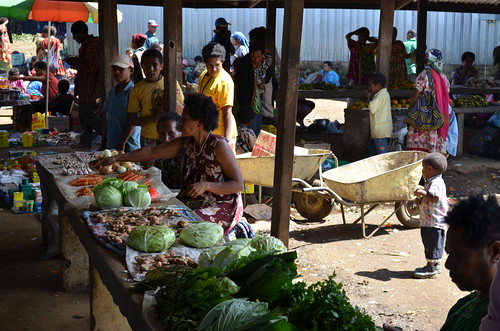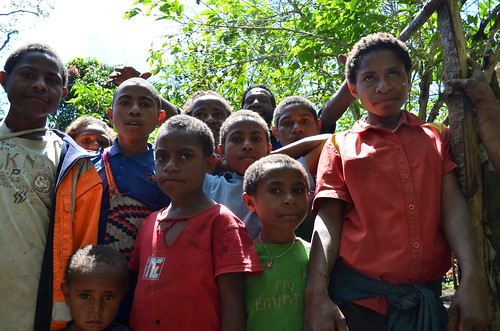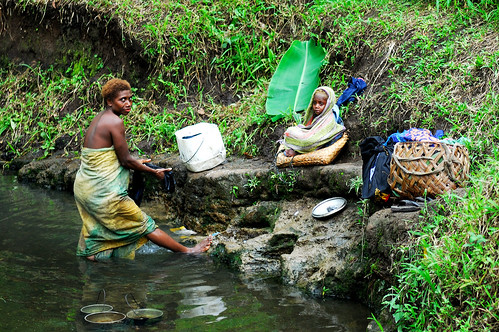Difference between revisions of "Adopting from Papua New Guinea"
(→Contact Information) |
|||
| Line 195: | Line 195: | ||
[http://www.adoptionservices.org/adoption_support_groups_family/index.htm Adoption Services Support Group for Adopting Persons] | [http://www.adoptionservices.org/adoption_support_groups_family/index.htm Adoption Services Support Group for Adopting Persons] | ||
| − | |||
| − | |||
| − | |||
| − | |||
| − | |||
| − | |||
| − | |||
| − | |||
| − | |||
| − | |||
| − | |||
| − | |||
| − | |||
| − | |||
| − | |||
| − | |||
| − | |||
| − | |||
| − | |||
| − | |||
| − | |||
| − | |||
| − | |||
| − | |||
| − | |||
| − | |||
| − | |||
| − | |||
| − | |||
| − | |||
| − | |||
| − | |||
| − | |||
| − | |||
| − | |||
| − | |||
| − | |||
| − | |||
| − | |||
| − | |||
| − | |||
| − | |||
| − | |||
| − | |||
| − | |||
| − | |||
| − | |||
| − | |||
| − | |||
| − | |||
| − | |||
| − | |||
| − | |||
==Contact Information== | ==Contact Information== | ||
Revision as of 06:48, 8 April 2014
Contents
Hague Convention Information
Papua New Guinea is not party to the Hague Convention on Protection of Children and Co-operation in Respect of Intercountry Adoption ( Hague Adoption Convention ). Therefore, when the Hague Adoption Convention entered into force for the United States on April 1, 2008, intercountry adoption processing for Papua New Guinea did not change.
Who Can Adopt
To bring an adopted child to United States from Papua New Guinea, you must be found eligible to adopt by the U.S. Government. The U.S. Government agency responsible for making this determination is the Department of Homeland Security, U.S. Citizenship and Immigration Services (USCIS). Learn more.
In addition to these U.S. requirements for adoptive parents, Papua New Guinea also has the following requirements for adoptive parents:
Residency
There is a minimum six-month period of residency required for adoptive parents, but they need not be permanent residents.
Age of Adopting Parents
The Government of Papua New Guinea requires no age limit for adoptive parents if they are healthy, fit, and capable of caring for the child.
Marriage
Prospective adoptive parents must be legally married.
Income
Prospective adoptive parents must be financially stable.
Other
N/A
Who Can Be Adopted
You cannot adopt a child in Papua New Guinea unless he or she meets these requirements of Papua New Guinea. In addition to these requirements, a child must meet the definition of an orphan under U.S. law for you to bring him or her back to the United States. Learn more about these U.S. requirements.
How to Adopt
Adoption Authority
Papua New Guinea's Adoption Authority
The central authority responsible for adoptions in Papua New Guinea is the Office of Child Welfare in the Department for Community Development.
The Process
The process for adopting a child from Papua New Guinea generally includes the following steps:
- Choose an Adoption Service Provider
- Apply to be Found Eligible to Adopt
- Be Matched with a Child
- Adopt the Child (or Gain Legal Custody) in Papua New Guinea
- Apply for the Child to be Found Eligible for Adoption
- Bring Your Child Home
1. Choose an Adoption Service Provider
The first step in adopting a child from Papua New Guinea is usually to select a licensed agency in the United States that can help with your adoption. Adoption service providers must be licensed by the U.S. state in which they operate. Learn more about choosing the right adoption service provider.
There are no adoption agencies in Papua New Guinea. The Office of Child Welfare in the Department for Community Development and its Director assists in adoptions.
2. Apply to be Found Eligible to Adopt
To bring an adopted child from Papua New Guinea to the United States, you must apply to be found eligible to adopt (Form I-600A) by the U.S. Government, Department of Homeland Security, U.S. Citizenship and Immigration Services (USCIS). Learn how.
In addition to meeting the U.S. requirements for adoptive parents, you need to meet the requirements of Papua New Guinea as described in the Who Can Adopt section.
3. Be Matched with a Child
If you are eligible to adopt, and a child is available for intercountry adoption, the central adoption authority in Papua New Guinea will provide you with a referral to a child. Each family must decide for itself whether or not it will be able to meet the needs of a particular child and provide a permanent family placement for the referred child. .
The child must be eligible to be adopted according to Papua New Guinean requirements, as described in the Who Can be Adopted section. The child must also meet the definition of an orphan under U.S. law. Learn more.
4. Adopt the Child (or Gain Legal Custody) in Papua New Guinea
The process for finalizing the adoption (or gaining legal custody) in Papua New Guinea generally includes the following:
- ROLE OF ADOPTION AGENCIES: There are no adoption agencies in Papua New Guinea. The Office of Child Welfare in the Department for Community Development and its Director assists in adoptions.
- ADOPTION APPLICATION: There is no application form for an adoption. The prospective adoptive parents must write a letter stating their intentions to adopt and address it to the Director of Child Welfare, Department for Community Development at Sanbra Haus, P.O. Box 7354, Boroko, NCD, Papua New Guinea.
- TIME FRAME:' It takes approximately nine months from the time a child is matched with a family for adoption until the adoption is finalized.
- ADOPTION FEES: There are no government charges for adoptions of Papua New Guinean children. Attorneys' fees vary and it is advisable to contact an attorney to obtain accurate fee information.
- DOCUMENTS REQUIRED: The following documents are required to complete an adoption in Papua New Guinea:
- 1. Birth certificate
- 2. Medical reports
- 3. Bank Statements
- 4. Marriage certificate, and
- 5. Family photos. NOTE: Additional documents may be requested. If you are asked to provide proof that a document from the United States is authentic, we can help. Learn how.
5. Apply for the Child to be Found Eligible for Adoption
After you finalize the adoption (or gain legal custody) in Papua New Guinea, the U.S Government, Department of Homeland Security, U.S. Citizenship and Immigration Services (USCIS) MUST determine whether the child is eligible under U.S. law to be adopted (Form I-600). Learn how.
6. Bring Your Child Home
Now that your adoption is complete (or you have obtained legal custody of the child), there are a few more steps to take before you can head home. Specifically, you need to apply for several documents for your child before he or she can travel to the United States:
- 1. Birth Certificate
You will first need to apply for a new birth certificate for your child, so that you can later apply for a passport. Your name will be added to the new birth certificate.
- 2. Papua New Guinean Passport
Your child is not yet a U.S. citizen, so he/she will need a travel document or Passport from Papua New Guinea.
- 3. U.S. Immigrant Visa
After you obtain the new birth certificate and passport for your child, you also need to apply for an U.S. visa from the United States Embassy for your child. After the adoption (or custody for purpose of adoption) is granted, visit the U.S. Embassy for final review and approval of the child's I-600 petition and to obtain a visa for the child. This immigrant visa allows your child to travel home with you. As part of this process, the Consular Officer must be provided the "Panel Physician's" medical report on the child if it was not provided during the provisional approval stage. Learn more.
APPLYING FOR A VISA AT THE U.S. EMBASSY IN PAPUA NEW GUINEA: Please visit the web site for the U.S. Embassy in Port Moresby, Papua New Guinea for information on how to schedule an immigrant visa interview.
NOTE: The Consular Section provides visa services only on Tuesday and Thursday mornings from 9:00 - 11:00 a.m. Issued visas will generally be ready for pickup in the afternoon of the same day. If the number of applicants or any other circumstance renders this impossible, then passports with visas will be returned the following morning, or as soon as possible after that time.
Child Citizenship Act
For adoptions finalized abroad: The Child Citizenship Act of 2000 allows your new child to acquire American citizenship automatically when he or she enters the United States as lawful permanent residents.
For adoptions finalized in the United States: The Child Citizenship Act of 2000 allows your new child to acquire American citizenship automatically when the court in the United States issues the final adoption decree.
Please be aware that if your child did not qualify to become a citizen upon entry to the United States, it is very important that you take the steps necessary so that your child does qualify as soon as possible. Failure to obtain citizenship for your child can impact many areas of his/her life including family travel, eligibility for education and education grants, and voting.
Learn more about the Child Citizenship Act.
Traveling Abroad
Applying for Your U.S. Passport
A valid U.S. passport is required to enter and leave Papua New Guinea. Only the U.S. Department of State has the authority to grant, issue, or verify U.S. passports. Getting or renewing a passport is easy. The Passport Application Wizard will help you determine which passport form you need, help you to complete the form online, estimate your payment, and generate the form for you to print-all in one place.
Obtaining Your Visa
In addition to a U.S. passport, you also need to obtain a visa. A visa is an official document issued by a foreign country that formally allows you to visit. Where required, visas are attached to your passport and allow you to enter a foreign nation. To find information about obtaining a visa for Papua New Guinea, see the Department of State's Country Specific Information.
Staying Safe on Your Trip
Before you travel, it's always a good practice to investigate the local conditions, laws, political landscape, and culture of the country. The State Department is a good place to start. The Department of State provides Country Specific Information for every country of the world about various issues, including the health conditions, crime, unusual currency or entry requirements, and any areas of instability.
Staying in Touch on Your Trip
When traveling during the adoption process, we encourage you to register your trip with the Department of State. Travel registration makes it possible to contact you if necessary. Whether there's a family emergency in the United States, or a crisis in Papua New Guinea, registration assists the U.S. Embassy or Consulate in reaching you. Registration is free and can be done online.
After Adoption
What resources are available to assist families after the adoption?
Many adoptive parents find it important to find support after the adoption. Take advantage of all the resources available to your family -- whether it's another adoptive family, a support group, an advocacy organization, or your religious or community services.
Here are some good places to start your support group search:
Child Welfare Information Gateway
North American Council on Adoptable Children
Adoption Services Support Group for Adopting Persons
Contact Information
U.S. Embassy in Papua New Guinea
U.S. Embassy - Port Moresby P.O. Box 1492 Port Moresby, N.C.D. 121 Papua New Guinea Tel: +(675) 321-1455 Fax: +(675) 320-0637 E-mail: png@state.gov Internet: U.S. Embassy Papua New Guinea
Papua New Guinea's Adoption Authority
Office of Child Welfare, Department for Community Development Sanbra Haus P.O. Box 7354 Boroko, NCD Papua New Guinea Tel: 675-325-9893
Embassy of Papua New Guinea
1779 Massachusetts Avenue, NW Suite 805 Washington, DC 20036 Tel: (202) 745-3680 Fax: (202) 745-3679 E-mail: info@pngembassy.org Internet: Embassy Papua New Guinea
Office of Children's Issues
U.S. Department of State CA/OCS/CI SA-17, 9th Floor Washington, DC 20522-1709 Tel: 1-888-407-4747 E-mail: AskCI@state.gov Internet: U.S. Department of State
U.S. Citizenship and Immigration Services (USCIS)
For questions about immigration procedures, call the National Customer Service Center (NCSC)
1-800-375-5283 (TTY 1-800-767-1833)
SOURCE
Intercountry Adoption, Bureau of Consular Affairs. U.S. Department of State Country Information[1]










